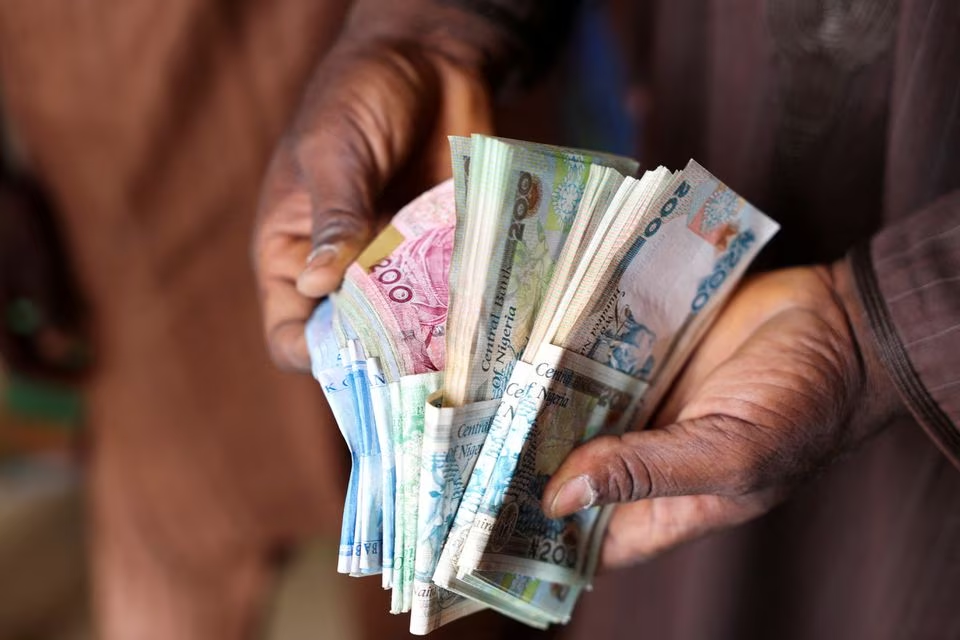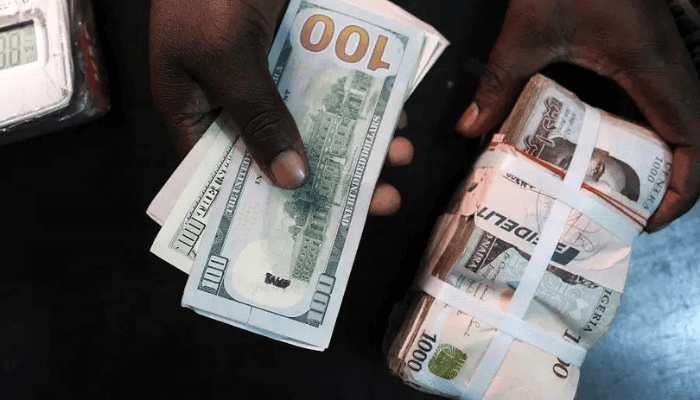

Nigeria's naira plummets to historic low of 980 naira per dollaras the naira has witnessed an unprecedented freefall, reaching a historic low on the official market.
This alarming devaluation mirrors the ongoing weaknesses in the parallel market and highlights the persistent shortage of U.S. dollars that has plagued the Nigerian currency market.
Escalating Naira Devaluation
Last month, the naira breached the 1,000 naira per dollar mark in the parallel market, and its downward spiral continues as the demand for U.S. dollars far exceeds the supply.
A considerable portion of this excess dollar demand has been redirected into the informal market from the official market.
This surge is a direct result of the removal of restrictions on trading the naira in the official market in June.
Economic Repercussions
The ramifications of this staggering decline in the naira's value are profound, with Nigerians grappling with surging costs and mounting inflationary pressures.
The devaluation of the naira reflects the broader economic challenges faced by Nigeria. These challenges include the volatile nature of oil prices and the external financial pressures that have collectively cast a shadow over the nation's economy.
Beyond the borders of Nigeria, the global community is closely monitoring the country's economic health, owing to its significant role as a major oil producer.
An unstable Nigerian economy could have far-reaching implications on global oil markets and economic dynamics.
This underscores the extensive consequences of the naira's devaluation and the far-reaching impacts it can have on the world stage.
The Way Forward
The Central Bank of Nigeria has voiced its commitment to intervene occasionally in the foreign exchange market to bolster liquidity.
This comes in the wake of the recent lifting of an eight-year ban on certain items that were previously restricted from accessing U.S. dollars in the official market.
These measures demonstrate the government's proactive approach to mitigate the economic challenges and ensure the naira remains a stable and reliable currency.
In light of this economic turbulence, Nigeria must prioritize prudent fiscal and monetary policies while also embarking on a journey towards economic diversification.
For the global community, Nigeria's economic stability remains a matter of significant concern, calling for continuous observation and analysis of the nation's economic trajectory.
Understanding the potential global impacts is vital, as it will inform the strategic interventions needed to stabilize the naira and enhance the country's economic resilience.
Final Words
Nigeria's naira has hit a record low, which carries significant economic implications for both the country and the global community. As a major oil producer, Nigeria's economic stability is crucial for global oil markets.
The nation's ongoing challenges, including persistent dollar shortages, require careful observation and strategic interventions for economic resilience.
While the government's actions are commendable, a comprehensive approach that includes fiscal and monetary policies is essential.
The global community should remain vigilant and supportive, as Nigeria navigates these economic difficulties and seeks a more stable and diversified future.

